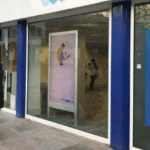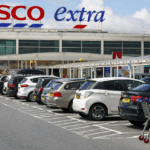The future of British high street lender TSB Bank has been cast into uncertainty after its Spanish parent company, Banco Sabadell, confirmed it is open to offers for the UK-based institution. The announcement comes as Sabadell seeks to defend itself against an €11 billion (£9.4 billion) hostile takeover attempt by Spanish rival BBVA, reigniting tensions within Spain’s financial sector.
Sabadell revealed it had received “preliminary non-binding expressions of interest” in TSB and would evaluate any formal offers that emerge. While no buyers have been named, industry sources suggest potential suitors could include major UK banking groups such as Barclays, NatWest, HSBC, and Santander UK.
A sale of TSB—comprising 175 branches, five million customers, and around 5,000 employees—would mark a significant strategic retreat for Sabadell from its international ambitions. The Spanish bank acquired TSB from Lloyds Banking Group in 2015 for £1.7 billion as part of a plan to expand abroad. However, TSB has since faced several setbacks, most notably a damaging IT systems failure in 2018 that undermined customer trust and cost the bank heavily.
According to financial analysts, a sale could raise between £1.7 billion and £2 billion, roughly in line with Sabadell’s original purchase price. Though TSB has declined to comment on the announcement, the timing of the potential divestment—amid BBVA’s aggressive merger campaign—has raised speculation that Sabadell is using the sale as a strategic lever.
The move also comes amid a broader uptick in banking sector activity across the UK and Europe. Metro Bank shares surged earlier this week following reports of a buyout approach, and Ireland’s government recently completed its exit from AIB Group, raising €305 million from the sale of its remaining stake.
Meanwhile, Sabadell continues to fend off BBVA’s acquisition attempt, which would create Spain’s second-largest lender. While politically contentious in Madrid, the proposed merger has cleared European Commission scrutiny. Spanish government officials, however, remain wary of the potential impact on banking sector competition and regional influence.
TSB’s own leadership has also undergone change. New CEO Marc Armengol, a long-time Sabadell executive and former strategy director at TSB, took the helm in early 2025 amid ongoing efforts to stabilise and modernise the brand. Despite these reforms, analysts suggest the bank has struggled to match its larger UK competitors in areas such as digital services and customer retention.
If sold to a UK-based institution, TSB could benefit from a clearer strategic direction and renewed investment. However, for Sabadell, parting with its British arm could be seen as a move borne more from pressure than proactive planning—raising questions about its future path as BBVA’s bid looms large.
With both domestic and international dynamics in flux, the coming weeks could prove pivotal in determining whether TSB becomes a strategic asset for a UK banking giant—or a casualty in a larger continental shake-up.








